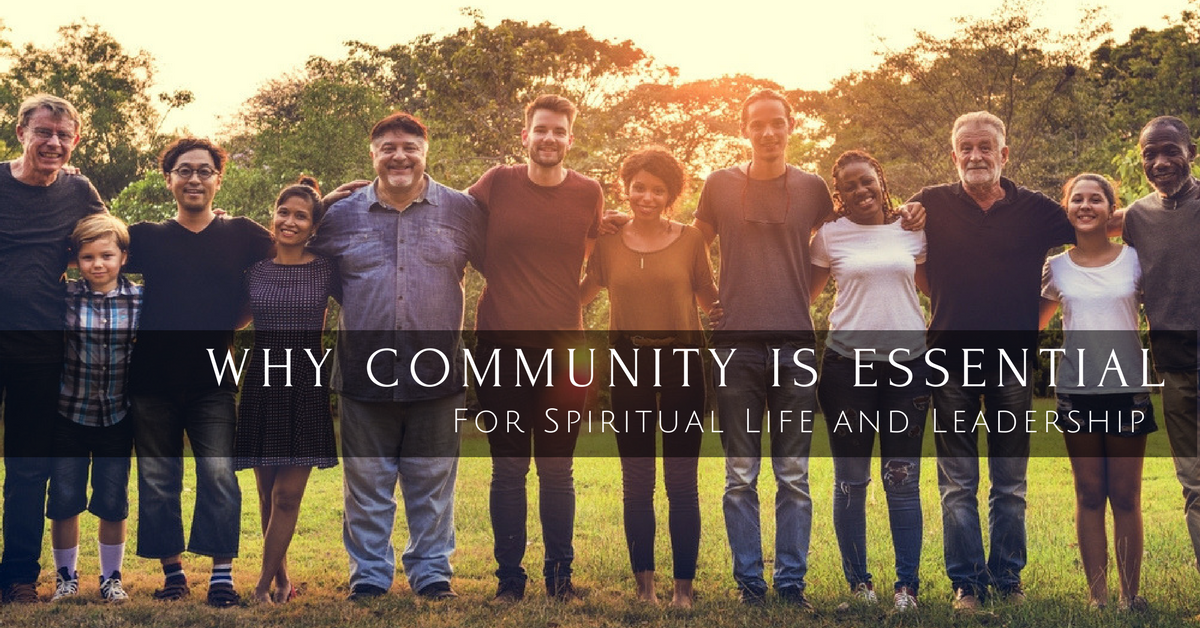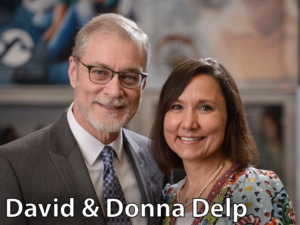
Podcast: Play in new window | Download
Connecting to a community is essential to our calibration, health, and growth as spiritual leaders and as Christ followers. Why do some have such a hard time connecting, fitting in, and finding a community? How does relational disconnection stunt our spirituality, growth and vision. In part one of this podcast, David and Donna focus upon the spiritual connection side of community and relationship, and strengthening our relational connections.
Continue reading for a time stamped set of episode notes, coaching questions, and links of items and resources discussed in the podcast.
Our Spirituality is to be Lived in Community
[shareable]We live and lead in the context of relationships. #Calibrate360 [/shareable]
Focusing on community and the relational part of spirituality and leadership is sometimes hard for me. I am so focused on hearing the heartbeat of the Father and my personal, individual devotion and connection that I sometimes neglect my pursuit of and community involvement in the community of Christ. [4:35]
I saw this quote the other day on Eugene Peterson’s Twitter feed (@PetersonDaily) about prayer. [5:16]
[callout]“In the long history of Christian spirituality, community prayer is more important, then individual prayer.”[/callout]
That quote caused me pause. Most of the time, when I think about my spirituality and my relationship with God I think about my individual devotion and disciplines. What if Christianity is simply not about individualism?
What if a personal relationship with God is only part of it and God is calling us into community as something both vital and necessary? What if breaking bread (communion) is the point?
You can’t break bread alone in the sense of “communion.”
We talk much about “fellowship”, “koinonia”, “community”, “better together”.
What if we are not just better together, but we miss the point of Christianity if we see it as personal or individual?
And in the living of our lives, if life is lived in the context of a relationship, then the building of relationship and community is essential, it is non-negotiable.
When we share Christ, we invite people into a community. We never are successful in changing someone’s philosophy without first inviting them into community. [11:07]
Book mentioned in the Podcast:
The Celtic Way of Evangelism by George Hunter
The early believers held all things in common.
I’m funny about my stuff, I don’t like to share. That reality always has bothered me and I’ve seldom seen it done in a healthy way. What is healthy when it comes to commune, community, holding all things in common, being one in Christ, sharing not only plenty but need?
Link: https://en.m.wikipedia.org/wiki/Koinonia [13:15]
“Koinonia (koy-nohn-eé-ah)[1] (transliterated from κοινωνία), which means communion, joint participation; the share which one has in anything, participation, a gift jointly contributed, a collection, a contribution, etc. It identifies the idealized state of fellowship and unity that should exist within the Christian church, the Body of Christ.”
The first use of the word is in Acts 2.42-47 (the foundational descriptive passage about what the church is to be.) [14:35]
“And they devoted themselves to the apostles’ teaching and the fellowship, to the breaking of bread and the prayers. And awe came upon every soul, and many wonders and signs were being done through the apostles. And all who believed were together and had all things in common. And they were selling their possessions and belongings and distributing the proceeds to all, as any had need. And day by day, attending the temple together and breaking bread in their homes, they received their food with glad and generous hearts, praising God and having favor with all the people. And the Lord added to their number day by day those who were being saved.” — Acts 2.42-47 ESV
Acts 2, they held all things in common. The breaking of bread, communion, participation together. The model of participation with Christ, being one with Christ. It models Christian community. Even as we are one with Christ it must lead to being one with each other.
I think somewhere along the way something has been lost in the way we think about life and Christianity. There is so much more, and it is challenging me and my assumptions. [16:27]
Hebrews 10.24,25 — “And let us consider how to stir up one another to love (compassion) and good works, not neglecting to meet together, as is the habit of some, but encouraging one another, and all the more as you see the Day drawing near” (ESV).
Question [17:52] — Why do people not embrace community? Hurt, individualism, disillusionment, personality, the lack of availability of true community — sometimes the “church” expects people to connect into their dysfunctional community… Sometimes its easier to be alone than to connect to a dysfunctional community. [17:52]
Book mentioned in this episode:
Safe People by Cloud and Townsend [19:00]
When Jesus taught us to pray he prayed OUR Father… give US this day OUR daily bread… lead US not into temptation…deliver US from evil… for thine is the kingdom, the power, and the glory forever… [23:44]
Acts 2, they held all things in common. The breaking of bread, communion, participation together. The model of participation with Christ, being one with Christ. It models Christian community. Even as we are one with Christ it must lead to being one with each other. [24:10]
We are called to participate in one another’s lives.
Evangelism is not about spreading an ideology, it is about invitation into the community. [24:38]
Question [24:52]: So what do you do if you cannot find a community? It is the responsibility of the person seeking community to find community… BUT… it is also a huge responsibility of a community to be receptive, for a leader to teach community receptivity, and to not belittle those who have tried for years to become a part of the community, but finally come to the realization that the community is never going to receive them. [24:52]
We have to be healthy and functional people … on BOTH sides. [30:10]
Calibration Tools: Lifting those we love and lead… [30:34]
In the Bible there are three archetypes of people/relationships we all need in our lives.
… We all need a “Paul” who mentors us and speaks into our lives.
… We all need a “Barnabas” who is a friend, a peer, and a colleague who cares enough about us to listen to us, hold us accountable, and speak truth to us when no one else will.
… We all need a “Timothy” who is someone less experienced, or younger, or simply has something to learn from us, into whom we can give what we have to offer through our life experiences and journeys.
Question One: Who is your “Paul”, who is your “Barnabas”, and who is your “Timothy?” Can you name them. If not, you are lacking a vital element of relationship. Pray about and think about who might fulfill these roles in your life, reach out, and begin the journey of building a relationship.
Question Two: Who is your “community?” A social media community is great, but is that really your community? It could be, in part, but there is no substitute for well rounded relationships where we interact with people. Are you a part of a network? A small group? A band of friends that you connect with and various levels? Who is your community? How will you find a community?
TRANSITION: I believe this model of our spiritual lives lived in the context of a relationship give us insight and guidance into how the rest of our lives are to be lived.
[36:39] Next week we will continue our discussion of the importance of community as we look into these topics:
- #1 Our visions and dreams were intended to be fulfilled in community
- #2 Our growth was intended to happen in community
- #3 Our Lives are intended to be lived in community




